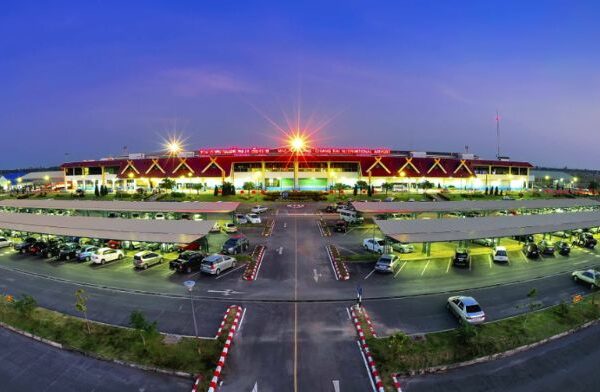


As the aviation sector emerges from the longest shutdown in its history, airports continue to work alongside their partners to help revive the global airline and tourism industries.
Global health experts concur that without some sort of viable solution to reduce the risk of virus transmission and restore traveller confidence, airports and airlines will find it difficult to recover. As a result, air transport hubs around the world are scrambling to find solutions to expedite the flow of passengers both inbound and outbound. One solution from Israeli-based Pangea – which specialises in the digital transformation of government and business services – is a platform that enables governments to issue a biometric smart card to verify that the holder is virus-free or has immunity.
The card comprises a photo of the holder, a digital signature, a chip and a hologram. It can be securely linked to a country’s medical database and includes up-to-date encrypted data on the holder’s COVID-19 profile. Requiring the close co-operation of tourism ministries, airports, airlines, and insurance companies, the issuing of the card would also rely on the close co-ordination of countries whose citizens will be travelling between them.
However, Pangea is already in talks with several governments on the use of the smart card in their countries, with the Israeli company’s EVP, Uzy Rozenthal, pointing out that, “The immunity passport will enable the creation of sterile areas where there is no danger of infection and where thousands of people would feel safe to conduct any activity without fear.”
Meanwhile, to protect the health of its passengers Nice Côte d’Azur has become one of the first seven European airports to sign the European Union Aviation Safety Agency’s (EASA) COVID-19 Charter. The airport has already undertaken various measures to protect the health of everyone in its terminals. These include social distancing protocols, the use of a UVC-emitting robot to disinfect surfaces and treating the ambient air. Underlining the importance of joining a programme to benefit from feedback and to measure the psychological effects of these measures on passengers, Isabelle Baumelle, Director of Operations and Airline Development at Nice Côte d’Azur, says: “We are convinced that confidence and peace of mind are decisive factors for the resumption of air traffic.”
It’s certainly not going to be a turbulence-free flight to recovery for the global aviation industry. Earlier this week Australia’s Trade Minister Simon Birmingham said the country is unlikely to reopen its borders to international travellers until 2021. And on Wednesday Beijing’s airports cancelled two-thirds of all flights as authorities rushed to contain a new coronavirus outbreak amid growing fears of a second wave of infections in China.
But if there’s one thing we’ve learnt in recent months, it’s that early action appears to pay dividends.
Have a great weekend and don’t forget the latest issue of Regional Gateway magazine is now available. To receive your free copy simply click here.
Best wishes,
Chloë Greenbank, Regional Gateway Editor.
If you do not currently receive our email updates, you can subscribe here.





